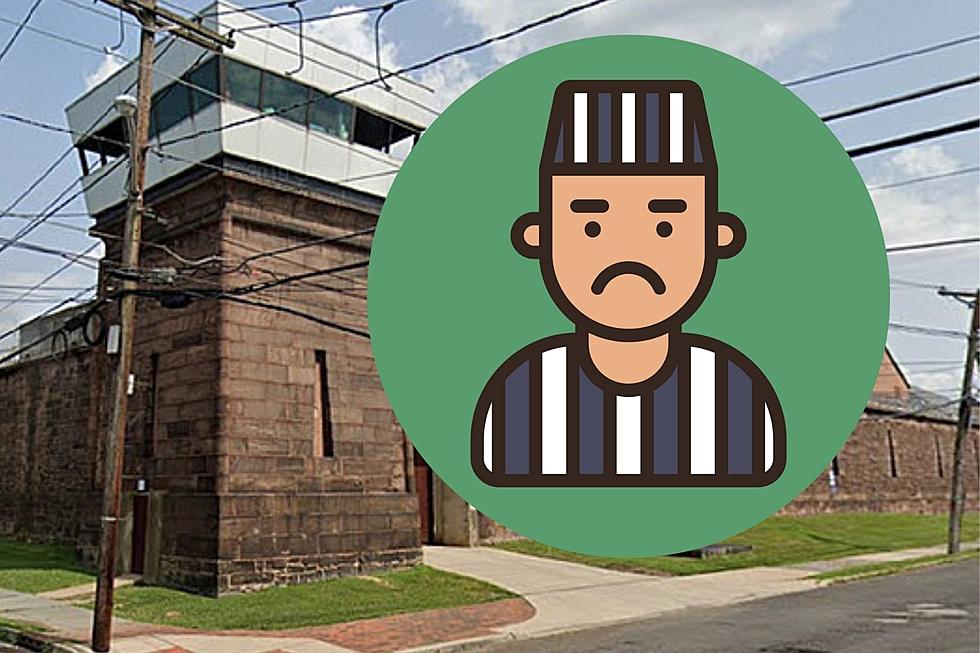
Too offensive for convicts and suspects? NJ might replace the word ‘inmate’
New Jersey is considering replacing the word “inmate” more than 1,000 times in all its laws, in an effort to remove the stigma associated with it.
The New Jersey Law Revision Commission has begun accepting public comment until May 16 on recommendations to replace the word “inmate” with such "person-first" terms as “person” or “person who’s incarcerated."
The issue was discussed at the commission’s recent regular meeting on Thursday after the launch of the project was pitched during the February meeting.
After the comment period ends, the commission would submit a report to the Legislature, suggesting revisions.
It follows a similar move in New York, where then Gov. Andrew Cuomo signed a law in August 2021 replacing the word “inmate” with "incarcerated individual" or "incarcerated individuals."
“The changes recommended by the Commission are designed to remove unnecessarily pejorative language from the NJ Criminal Code,” Seton Hall Law School Professor John Kip Cornwell said in a written response to New Jersey 101.5.
“The alternative language – ‘persons who are incarcerated’ – promotes dignity and respect while accomplishing the legislative goals of targeted provisions,” he continued.
Cornwell is a delegate who attends on behalf of New Jersey Law Revision Commissioner Kathleen M. Boozang, Dean of Seton Hall Law.
Who is an inmate?
In New Jersey, there is no uniform definition for the term inmate.
The word refers to a person who has been sentenced to imprisonment or ordered into pretrial or investigative detention in a state prison or county correctional facility.
It could also mean a person confined in a correctional facility or anyone who has been sentenced as an adult to a term of incarceration.
Not every individual who is incarcerated has been adjudicated and sentenced to a term of imprisonment.
Some individuals are lodged in county correctional facilities while they await a pretrial release determination, or the trial or hearing of their case.
“A shift to person-first language has begun in the field of criminal justice, with advocates
recommending a change from terms characterized as ‘dehumanizing’ and ‘stigmatizing’ to those that focus on an individual’s identify and their capacity for growth,” according to the project summary, issued on March 7.
The presence of the term “inmate” in more than 250 individual statutes “may support consideration of its elimination,” the summary continued.
“A person who is incarcerated is first and foremost a person, and when we call them people instead of ‘inmates,’ we’re acknowledging the humanity they retain," ACLU-NJ Staff Attorney Tess Borden said in a statement to New Jersey 101.5. "In a prison system that is too often dehumanizing and even inhumane, calling them people is a small but significant step toward reform.”
A survey by The Marshall Project in 2015 found that "incarcerated person" was the favored term, with 38% support, ahead of either "prisoner" (23%) or "inmate," (10%) out of more than 200 responses.
In second place, 30% of respondents selected “other” (“person in prison,” “man or woman,” “the person’s name").
St Peters enters NCAA Sweet 16, NJ gets Peacock Fever
Every NJ pizza joint Barstool's Dave Portnoy has reviewed
Update: NJ arrests in Jan. 6 U.S. Capitol riot
NJ freedom trucker convoy on March 5 — What Bill Spadea saw
2022 Seaside Heights Polar Bear Plunge photos
2021 NJ property taxes: See how your town compares
More From New Jersey 101.5 FM









